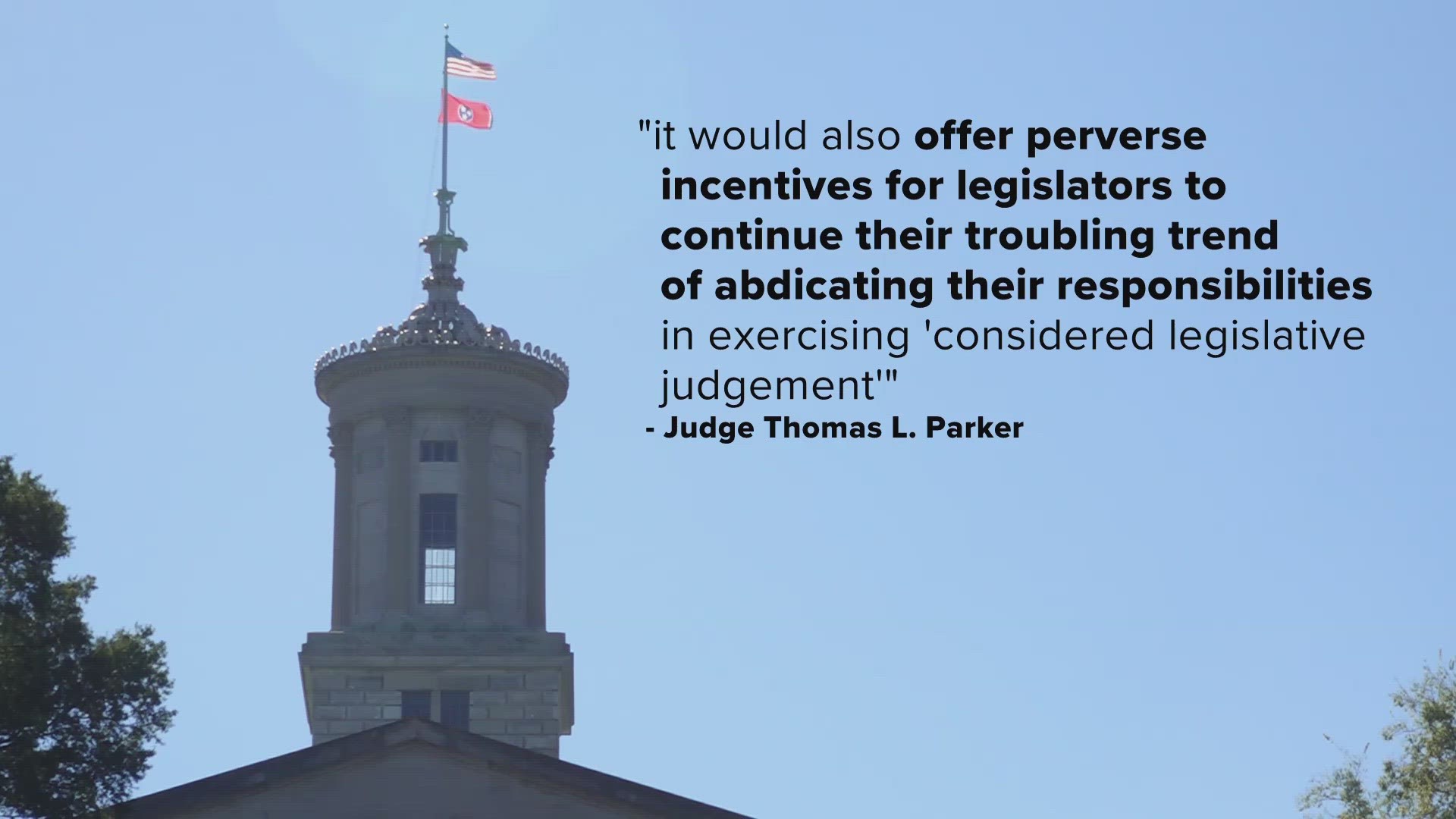KNOXVILLE, Tenn. — In a searing ruling, Judge Thomas L. Parker in the Western District of Tennessee struck down the state's ban on public drag show performances, while arguing Tennessee lawmakers are trying to abdicate their responsibilities.
Republican lawmakers argued the Adult Entertainment Act was written to shield children from obscenities, as defined by Tennessee law.
"They can have any event they want to," said Sen. Jack Johnson (R - Franklin), one of the sponsors of the legislation. "If it's going to meet that standard of harmful to a minor, that's been in our code for many years, just don't let the kids in. It's that simple."
Opponents of the legislation said it unfairly targeted drag shows and the transgender community. In his 70-page ruling striking down the law, Judge Parker, who was appointed by President Trump in 2017, ruled the law violated First Amendment protections.
"This statute-- which is barely two pages long-- reeks with constitutional maladies of vagueness and overbreadth fatal to statutes that regulate First Amendment rights," Judge Parker wrote.
He argued the law was too broad, and Tennessee wanted him to rewrite the law to make it narrower.
"To rewrite this law would not only violate the separation-of-powers principle, but it would also offer perverse incentives for legislators to continue their troubling trend of abdicating their responsibilities in exercising 'considered legislative judgment,'" Judge Parker wrote.
When discussing the legislation, Republican lawmakers argued the Adult Entertainment Act wasn't tailored to drag shows. However, Judge Parker said the law targeted gender identity — specifically people whose gender expression could be different than their gender assigned at birth.
"The Tennessee General Assembly can certainly use its mandate to pass laws that their communities demand," said Judge Parker. "But that mandate as to speech is limited by the First Amendment to the United States Constitution."
The order prevented District Attorney General Steven Mulroy from Shelby County from enforcing the law. It doesn't stop District Attorneys General from other districts from enforcing the law once it is in effect.

